Top Hot Water System Solutions | Efficient and Reliable Options
Looking for the best hot water system for your home? This guide covers the main types—electric, gas, and solar—so you can make a smart choice. We’ll discuss benefits, costs, and considerations to help you find the right fit.
Key Takeaways
-
Hot water systems come in various types, including electric, gas, and solar, each with unique benefits and efficiencies to suit different household needs.
-
Choosing the right hot water system can significantly impact energy bills and environmental footprint, so factors like household size, water usage, and long-term costs are critical considerations.
-
Regular maintenance and understanding financial incentives can extend the lifespan of hot water systems and optimize energy savings, making upgrades to more efficient models a financially sound decision.
Top Hot Water System Solutions | Efficient and Reliable Options
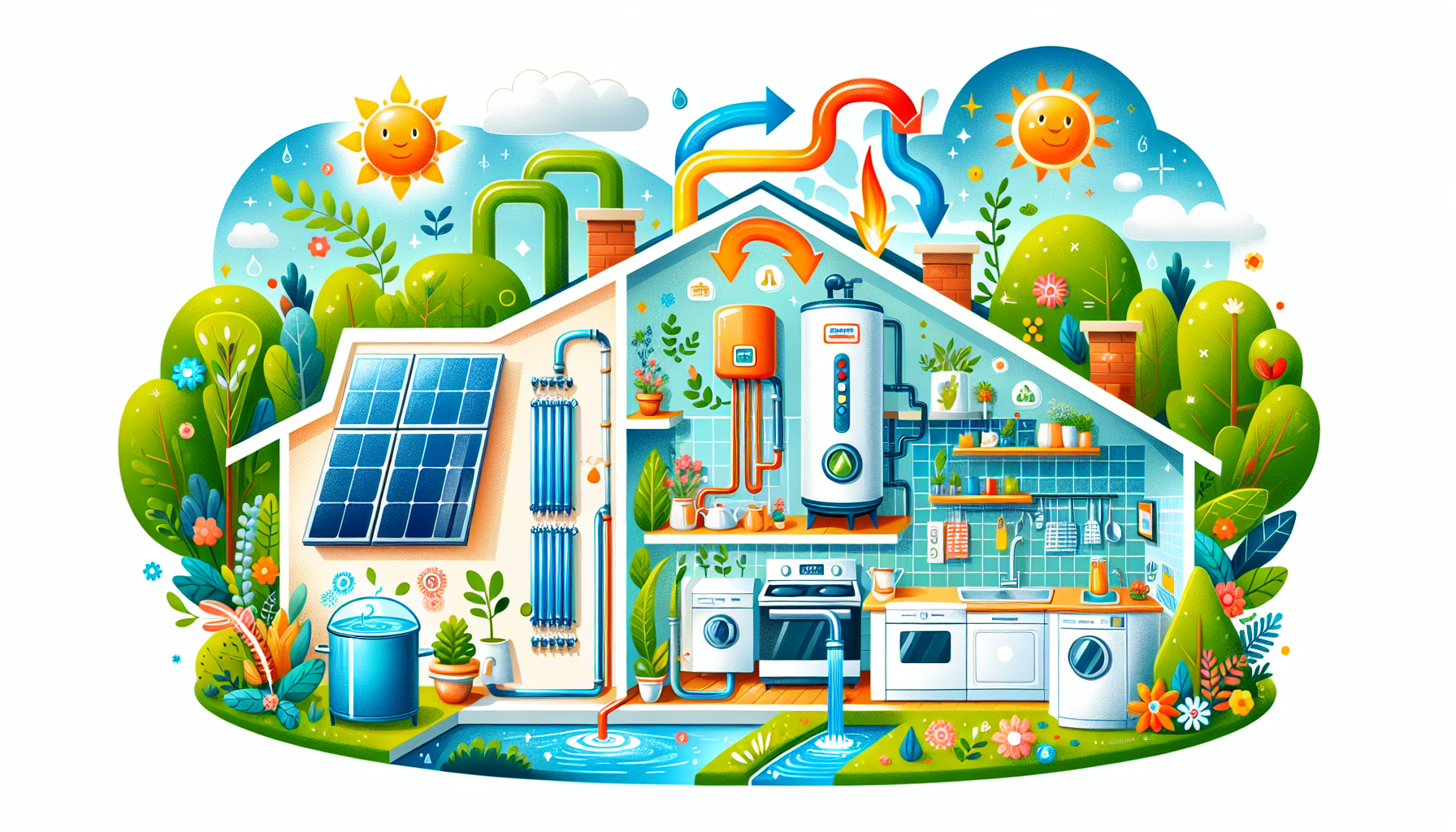
When it comes to hot water systems, the choices are extensive and varied. The main types include electric, gas, and solar options, each with its unique advantages and considerations. Australian Hot Water offers a diverse range of solutions, including electric, gas continuous flow, gas storage, solar, and Stellar stainless steel models. These choices help you make informed decisions that best suit your household’s needs.
Advancements in technology have significantly enhanced the efficiency and reliability of these systems. Whether you’re looking to replace an old hot water system or install a new hot water system, it’s essential to consider the latest innovations that can provide substantial energy savings and improved performance. Exploring top hot water system solutions ensures your home remains comfortable and energy-efficient.
Introduction
Hot water systems are indispensable for both residential and commercial properties, meeting a variety of heating needs. This guide helps you explore the best hot water system options, emphasizing efficiency and reliability. The range of available options, from traditional electric systems to modern solar solutions, ensures there’s something for every home and budget.
Selecting the right system means considering initial installation, long-term operational costs, and environmental impact. Whether you’re looking for a system that operates on gas, electricity, or renewable energy, understanding the diverse range of options will help you make a decision that suits your family’s needs and lifestyle.
We delve into the specifics of each type to equip you with the knowledge to select and install the ideal hot water system for your home.
Understanding Different Types of Hot Water Systems
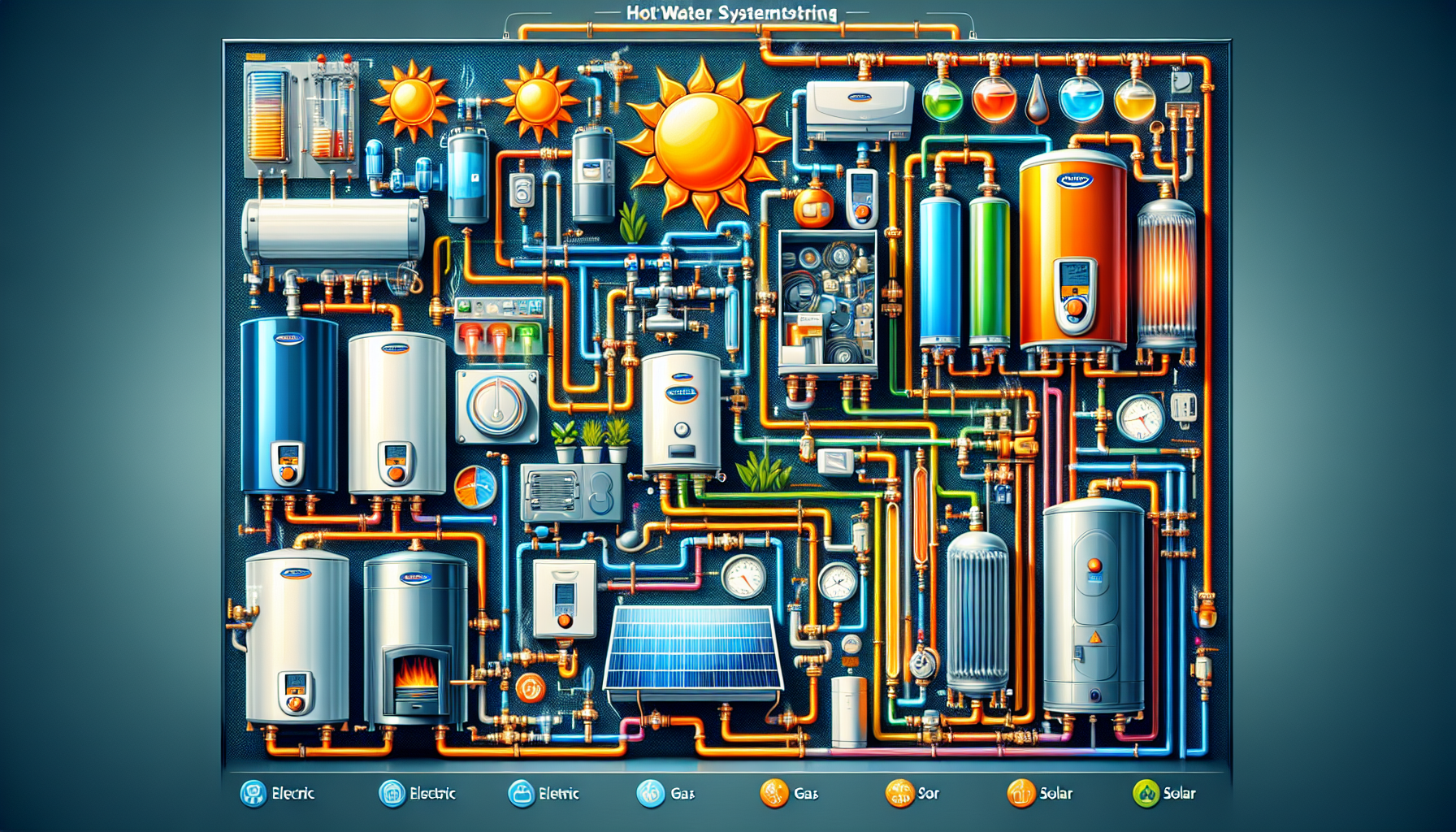
Knowing the various types of hot water systems is essential for making an informed purchase. Modern households rely on different systems for their daily hot water needs, and knowing how each one functions can greatly influence your decision. The main types of hot water systems include electric, gas, and solar options, each offering unique benefits and efficiencies.
Australian Hot Water supplies a variety of systems, including electric, gas continuous flow, gas storage, and solar models. Electric hot water systems, for instance, can be either storage or continuous flow units, each with its own set of advantages. Understanding these options helps you choose a system that meets your hot water demands while aligning with energy efficiency goals and budget.
Choosing the Right Hot Water System for Your Home
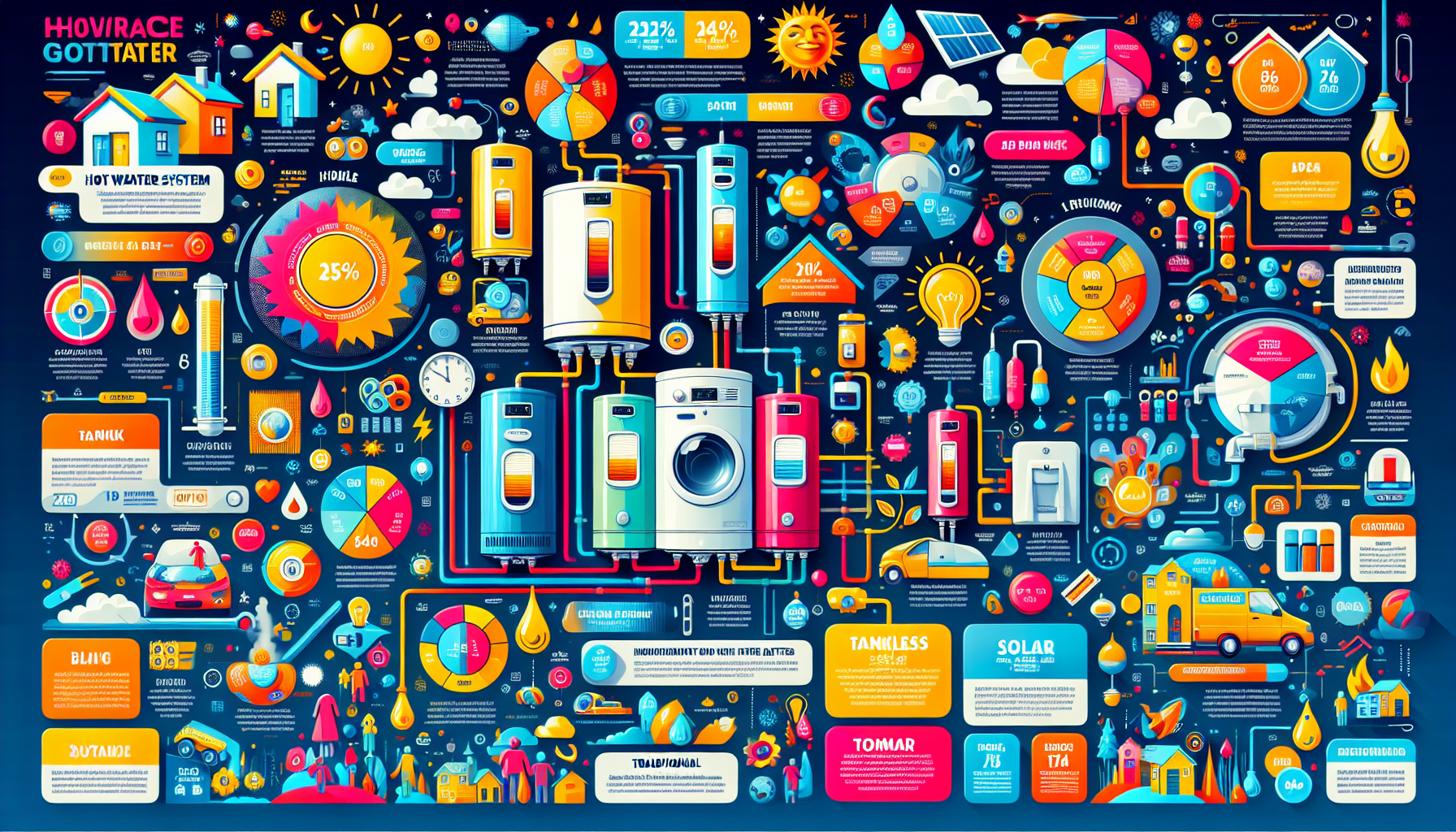
Choosing the right hot water system is a critical decision that can significantly impact your energy bills and home comfort. A substantial portion of household energy usage in Australia is dedicated to heating water, highlighting the importance of an efficient system. Choosing the right hot water system helps save on energy bills and reduce greenhouse gas emissions.
Consider factors like household size and hot water usage patterns when selecting a hot water system. For instance, continuous flow systems should be evaluated based on the number of hot water outlets rather than just household size. Gas hot water systems, in particular, should take into account household size, water usage, and local climate to ensure optimal performance.
Running costs, which can be up to seven times the initial purchase price, significantly influence total costs over ten years. Making an informed choice can lead to long-term savings and a more comfortable home environment.
Electric Hot Water Systems Explained
Electric hot water systems are a popular choice due to their convenience and relatively straightforward installation. These systems work by using electricity to heat water, which can either be stored in tanks or heated on demand. There are two main types of electric hot water systems: storage units, conventional electric water heaters, and continuous flow units, each catering to different needs and preferences.
Rheem’s continuous flow systems, for example, are available in various sizes and boast impressive energy efficiency ratings. These systems heat water as it flows through a heat exchanger, eliminating the need for storage tanks and providing hot water instantly. Understanding the differences between storage and continuous flow units can help you choose the right system for your home.
Storage Units
Electric storage systems utilize a tank to hold water while it is heated, which is then delivered to taps when needed. These systems are ideal for households with consistent hot water usage, as they ensure a ready supply of hot water regardless of peak usage times.
The tank sizes vary, allowing for flexibility in choosing a unit that matches your household’s needs.
Continuous Flow Units
Continuous flow electric hot water systems operate by allowing cold water to flow through a copper pipe, where it is heated by an electric element, providing hot water instantly. These units are highly efficient and can be installed both indoors and outdoors due to their compact design.
With proper maintenance, continuous flow systems can have a lifespan of up to 20 years, making them a durable and efficient option for any home.
Gas Hot Water Systems: Efficiency and Performance
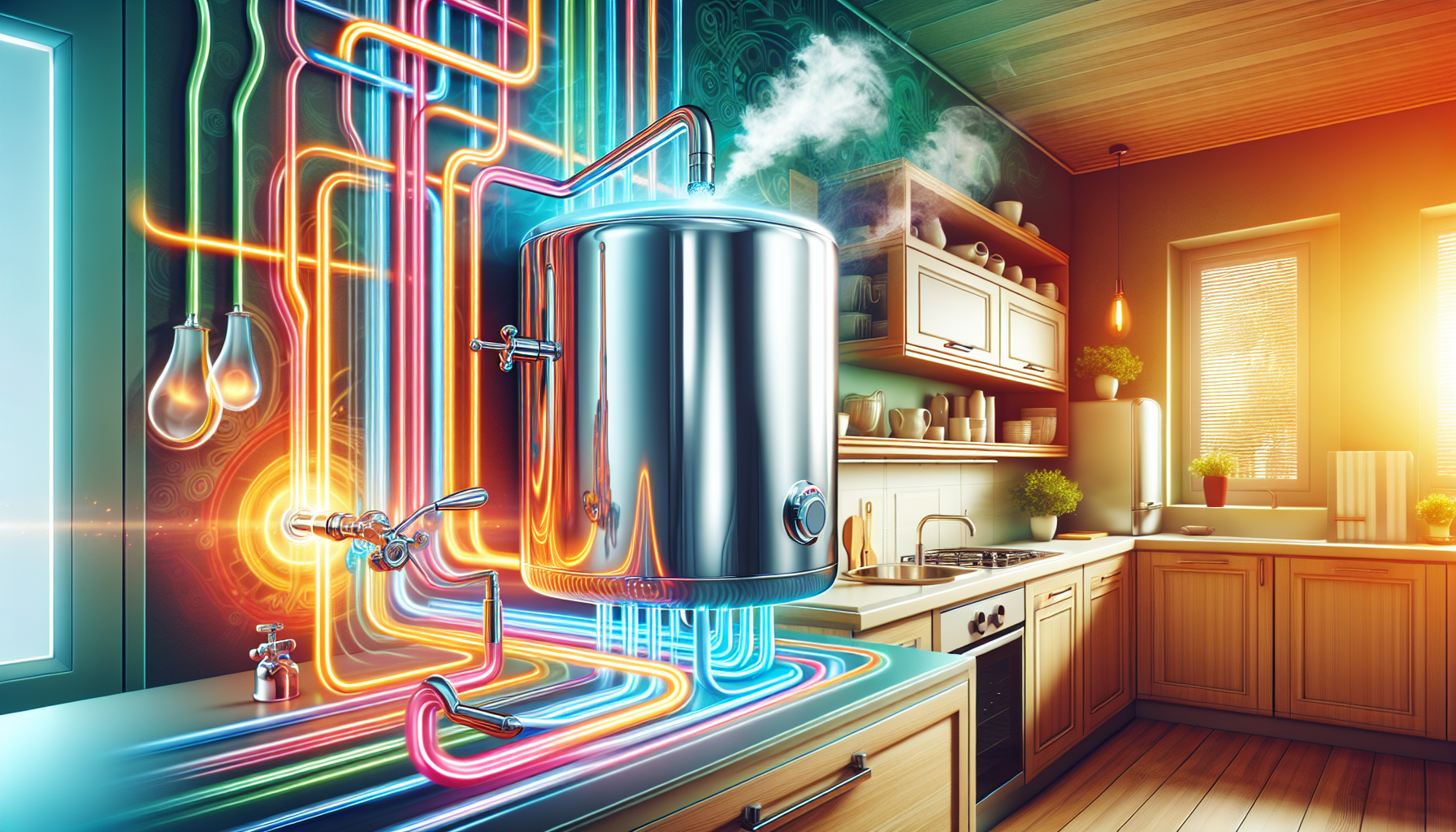
Gas hot water systems are renowned for their efficiency and performance, delivering hot water on demand and significantly reducing energy waste compared to traditional electric heaters. Instantaneous gas systems, in particular, provide a continuous supply by heating water only when needed, resulting in higher energy efficiency.
These systems are also more environmentally friendly, emitting fewer greenhouse gases than electric alternatives. With average annual running costs around $400, gas water heaters are generally cheaper to operate compared to electric models.
For households with high hot water needs, natural gas storage systems offer quick recovery times, ensuring a steady supply of hot water.
Solar Hot Water Systems: Harnessing Renewable Energy
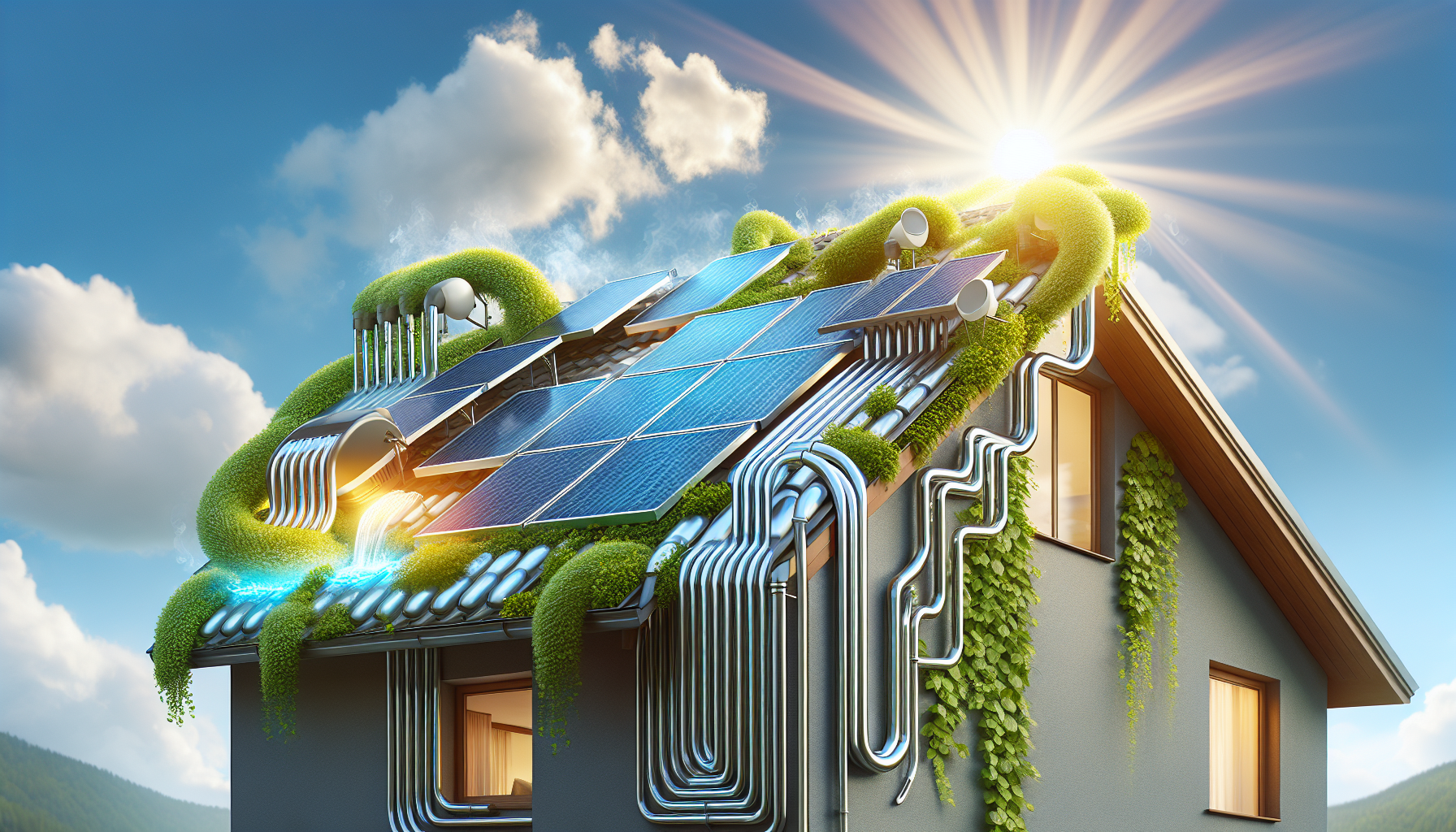
Solar hot water systems are an excellent choice for those looking to reduce their environmental impact and save on energy costs. These systems harness the power of the sun to heat water, significantly reducing greenhouse gas emissions. By switching to solar hot water, homeowners can achieve potential savings of 50% to 80% on their water heating bills.
While the initial investment for solar hot water systems can be higher, the long-term savings on running costs make them a cost-effective choice. These systems typically have a lifespan of up to 10 years and require minimal maintenance once installed correctly.
Even on cloudy or rainy days, solar hot water systems can provide a continuous supply of hot water by storing heated water.
Heat Pump Water Heaters: Modern and Eco-Friendly
Heat pump water heaters are among the most efficient hot water systems available, often yielding savings of up to 70% on energy bills compared to traditional electric systems. These systems operate by transferring heat from the surrounding air to heat water, functioning similarly to a refrigerator but in reverse.
In warmer climates, heat pump water heaters perform even more efficiently due to higher surrounding air temperatures. Powered primarily by solar energy, these systems can achieve annual running costs as low as $50.
For those looking to replace an old hot water system with a more modern and eco-friendly option, heat pump water heaters are an excellent choice.
Installation Considerations for Hot Water Systems
Proper installation is critical to ensuring the safe and efficient operation of hot water systems. Professional installation is especially important for gas hot water systems to ensure safety and compliance with local regulations. Engaging a licensed professional for tasks involving gas connections or electrical wiring is necessary to avoid potential hazards.
Ensuring compliance with local building codes and safety regulations is essential before installing a hot water system. In many regions, permits may be required for the installation of hot water systems. Choosing a well-ventilated area with adequate space for maintenance can also enhance the system’s performance and longevity.
Maintenance Tips to Extend Lifespan
Regular maintenance is key to maximizing the efficiency and lifespan of hot water systems. Homeowners should:
-
Regularly clean or replace air filters
-
Inspect sacrificial anodes
-
Check for leaks to prevent potential damage and ensure optimal performance
-
Flush the hot water tank annually to remove sediment buildup, which can also improve efficiency.
Additionally, testing the temperature and pressure relief valve is crucial for safety and proper functioning. Keeping the area around the hot water system clear of debris ensures easy access and reduces the risk of accidents.
Following these maintenance tips helps homeowners extend the lifespan of their hot water systems and save on energy costs.
Regular Servicing Schedule
Regular professional servicing maintains the optimal performance and efficiency of hot water systems. Ignoring periodic maintenance can lead to increased energy costs and potential system failures. Professional servicing can help identify and fix small issues before they develop into larger, more costly problems, ensuring that the hot water system operates efficiently and reliably.
DIY Maintenance Checks
Homeowners can perform minor maintenance every six months, such as operating the temperature pressure relief valve and checking for blockages in the drain line. Measuring the water temperature from the hot tap nearest to the heater ensures it does not exceed 50°C, preventing potential safety hazards.
Major servicing should occur approximately every five years, involving the replacement of various valves and inspection of the anode. These simple DIY checks can help maintain the system’s efficiency and prevent costly repairs.
Cost Analysis of Hot Water Systems
Cost analysis is a crucial aspect of choosing the right hot water system. Homeowners can receive financial incentives ranging from $400 to $670 for replacing electric water heaters with air source heat pump systems. Government incentives, such as Small-Scale Technology Certificates (STCs), can also help offset the initial costs of installing solar hot water systems.
Routine maintenance can significantly reduce utility costs by improving the energy efficiency of hot water systems. By choosing an energy-efficient system and maintaining it regularly, homeowners can achieve substantial savings on their energy bills and reduce their environmental impact.
Initial Purchase and Installation Costs
The initial purchase and installation costs of hot water systems vary significantly. Electric storage water heaters are generally the least expensive to purchase but may incur higher operational costs. Heat pump water heaters, on the other hand, can have upfront prices ranging from $3,000 to approximately $4,800, influenced by factors like capacity and installation complexity.
Solar water heating systems typically have an initial cost range of $3,000 to $6,000, depending on system size and installation specifics.
Running Costs and Energy Efficiency
Running costs and energy efficiency are crucial factors to consider when evaluating hot water systems. Electric hot water systems on a standard tariff are among the most expensive to operate, with annual costs around $970. In contrast, solar hot water systems incur running costs of only $120 to $150 per year, making them the most cost-effective choice over time.
Considering energy efficiency ratings and potential savings helps homeowners make balanced decisions between upfront costs and long-term benefits.
Financial Incentives and Rebates
Government incentives and rebates can significantly reduce the initial costs of installing energy-efficient hot water systems. Programs like Small-Scale Technology Certificates (STCs) provide monetary incentives for using renewable energy sources, with each certificate worth up to $35 for each MWh/yr displaced.
Rheem supports solar and heat pump systems through these government incentives, making it easier for homeowners to invest in environmentally friendly technologies. These financial incentives, combined with the ongoing cost savings from energy-efficient appliances, make upgrading to a modern hot water system a financially sound decision.
Emergency Repairs and Support
When hot water systems fail, immediate repairs are often necessary to avoid severe inconvenience and potential damage. Services are available for urgent hot water repairs, ensuring quick response times, even on holidays. Local plumbers equipped with stocked vans can address emergency situations efficiently, providing fixed-price quotes before any repairs are performed.
Rheem hot water systems come with 24/7 emergency maintenance and repair service, ensuring that your hot water needs are always met.
Trusted Brands and Models
Choosing a trusted brand is crucial for ensuring the reliability and longevity of your hot water system. Leading brands recognized for their quality and performance include Rheem, Dux, Rinnai, Bosch, and Aquamax. Rheem, in particular, is often recommended for its innovative features and dependable performance.
Other notable brands like Wilson, Zip, and Stiebel Eltron also offer high-quality hot water systems that cater to various needs and preferences. By selecting a reputable brand, homeowners can make an informed decision and enjoy peace of mind.
Summary
In conclusion, selecting the right hot water system is a decision that impacts not just your comfort, but also your energy bills and environmental footprint. From electric and gas to solar and heat pump systems, each type offers unique benefits. Understanding these options, considering factors like installation and running costs, and leveraging financial incentives can lead to significant savings and improved efficiency. By making an informed choice, you ensure a reliable supply of hot water while contributing to a sustainable future.
Frequently Asked Questions
What are the main types of hot water systems available?
The main types of hot water systems are electric, gas, solar, and heat pump water heaters, each providing different benefits depending on your needs. Choosing the right one can significantly impact your energy bills and comfort at home.
How can I choose the right hot water system for my home?
To choose the right hot water system for your home, think about your household size, how much hot water you typically use, energy efficiency, and your local climate. This will ensure you pick a system that fits your needs and saves you money on bills.
What are the benefits of solar hot water systems?
Solar hot water systems can save you 50% to 80% on your water heating bills while cutting down on greenhouse gas emissions. They're not just eco-friendly; they also lighten your energy costs!
How often should I maintain my hot water system?
You should aim for professional servicing of your hot water system periodically, while doing minor DIY checks every six months to keep everything running smoothly. Regular maintenance helps ensure your system is efficient and reduces the risk of unexpected issues.
Are there financial incentives for installing energy-efficient hot water systems?
Absolutely, there are financial incentives like Small-Scale Technology Certificates (STCs) that can significantly reduce the upfront costs of solar and heat pump hot water systems. These programs make it more affordable to go green!





























